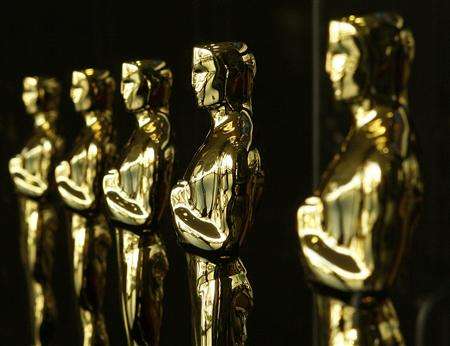The New Documentary Movement
Sunday’s Oscar for Best Documentary Feature, awarded to “Inside Job,” underscores the ongoing need for strong investigative journalism that exposes corruption. If you’re making such a hard-hitting documentary, congratulations. However, I may not want to see your film.
Having taught for 18 years at a graduate school of journalism (UC Berkeley), I’m steeped in an editorial approach that undermines rather than builds up. And now I, like many viewers in America, am fed up. Actually, I just want to see an uplifting documentary! Thankfully, times are changing.
I recently attended the Sundance Film Festival, where a film that I story consulted on, “Connected” (connectedthefilm.com), premiered. And I saw more evidence of what I’m dubbing “The New Documentary Movement”, a discernable shift in the spirit and tenor of documentary filmmaking, as it’s emerging today.
The new movement is emerging partly in reaction to two current day realities that, in my belief, are no longer serving you filmmakers, or our industry, or our viewers:
- First, a stigma has developed that documentaries are depressing. In America especially, we have a glut of social issue documentaries that preach to the choir, that don’t move viewers who aren’t in the choir, and that in fact depress most “mainstream” viewers so much they’ve learned to avoid them!
- The second factor is that there are tens of thousands of floundering filmmakers who either never finish their project, or if they do, it sits on a shelf or a hard drive, mostly unseen, rather than finding an appreciative audience. The main reason for this problem is a lack of funding, but the deeper reason I see is an anti-business bias among many highly educated filmmakers who haven’t honed enough business skills to pull of a major production.
The defining feature of the films emerging from the New Documentary Movement is hope. Many of them, like Constance Marks’ documentary “Being Elmo,” which won the Special Jury Prize at Sundance. “Being Elmo” is an optimistic story about the puppeteer behind Sesame Street’s Elmo muppet that doesn’t depend on bad things happening to grip the audience. Viewers were in tears (myself included) from the small acts of kindness that made up that film’s plot twists.
Then there are documentaries, like the Sundance hit, “Sing Your Song” about the activism of performer Harry Belafonte, that don’t shy away from terrible events. As you might expect, it was an entertaining film, and it was also a stirring call to correct injustice in the world. When asked by a reporter if he was an optimist, Belafonte replied, “Of course! I live in a perpetual state of optimism…The world is in need of hope. The world is in need of vision.”
His “get involved” attitude, along with his music, made it possible to watch the litany of difficult images in the documentary–ranging from police battering blacks in the 1960’s South to children starving in Ethiopia–and still come away asking oneself the film’s last line, “What can I do now?” In other words, what’s my assignment to help make the planet a better place? “Sing Your Song” is a stirring example of the optimism in the New Documentary Movement.
Contrast that with my experience on Sunday, my last day at Sundance, when the only documentary I had time to see was “Hell and Back”, a film about a soldier in the Afghanistan war. I really didn’t want to see a war film. I knew it would be depressing and just make me mad that we go to war. But it won an award, and as my girlfriend Lynn, said, “Sometimes it’s important to see the hard films”.
So we saw it. And of course I hated it. Or rather, I hated how it made me feel. That war was stupid and people who fought wars were stupid and there was nothing I could do about it. I didn’t feel more compassionate or called to action after the film. But I tried to keep an open mind and forced myself to ask, could this film help anyone? And maybe it could. After all, the jurors gave it the Grand Jury Prize for Best World Documentary. Maybe it could help someone who was on the fence about war see how futile it was.
It’s important to understand that the New Documentary Movement isn’t about making films that sugar coat hard realities. And there will always be a place for hard-hitting investigative documentaries like “Inside Job”, “Crude” and “The Cove”. Exposing corruption is important. But don’t leave us without hope. Many documentaries are emerging these days-and I have had the privilege of working on many films-in-progress like Katie Teague’s “Money and Life” and Yehuda Maayan’s “Law of the Heart” -that are more interested in generating solutions to today’s problems than pointing the finger at the usual suspects. This new breed of filmmakers invite viewers to consider what’s possible, rather than dwell on what’s wrong. And the trend is a refreshing antidote to the stigma that documentaries are depressing. Ultimately, this movement will vastly increase the number of people who view documentaries in America.
